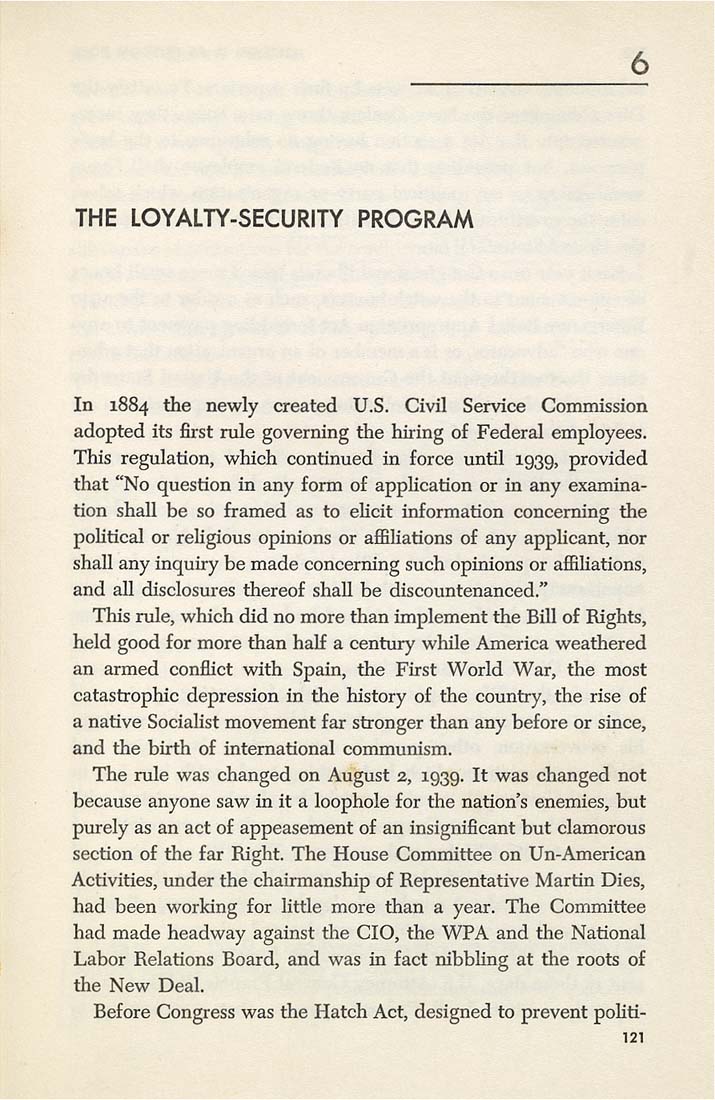THE LOYALTY-SECURITY PROGRAM
In 1884 the newly created U.S. Civil Service Commission
adopted its first rule governing the hiring of Federal employees.
This regulation, which continued in force until 1939, provided
that "No question in any form of application or in any examina¬
tion shall be so framed as to ehcit information concerning the
poHtical or religious opinions or affiliations of any applicant, nor
shall any inquiry be made concerning such opinions or affiliations,
and all disclosures thereof shall be discountenanced."
This rule, which did no more than implement the Bill of Rights,
held good for more than half a century while America weathered
an armed conflict with Spain, the First World War, the most
eatastiophic depression in the history of the countiy, the rise of
a native Socialist movement far stionger than any before or since,
and the bhth of international communism.
The rule was changed on August 2, 1939. It was changed not
because anyone saw in it a loophole for the nation's enemies, but
purely as an act of appeasement of an insignificant but clamorous
section of the far Right. The House Committee on Un-American
Activities, under the chairmanship of Representative Martin Dies,
had been working for little more than a year. The Committee
had made headway against the CIO, the WPA and the National
Labor Relations Board, and was in fact nibbhng at the roots of
the New Deal.
Before Congress was the Hatch Act, designed to prevent pohti-
|








